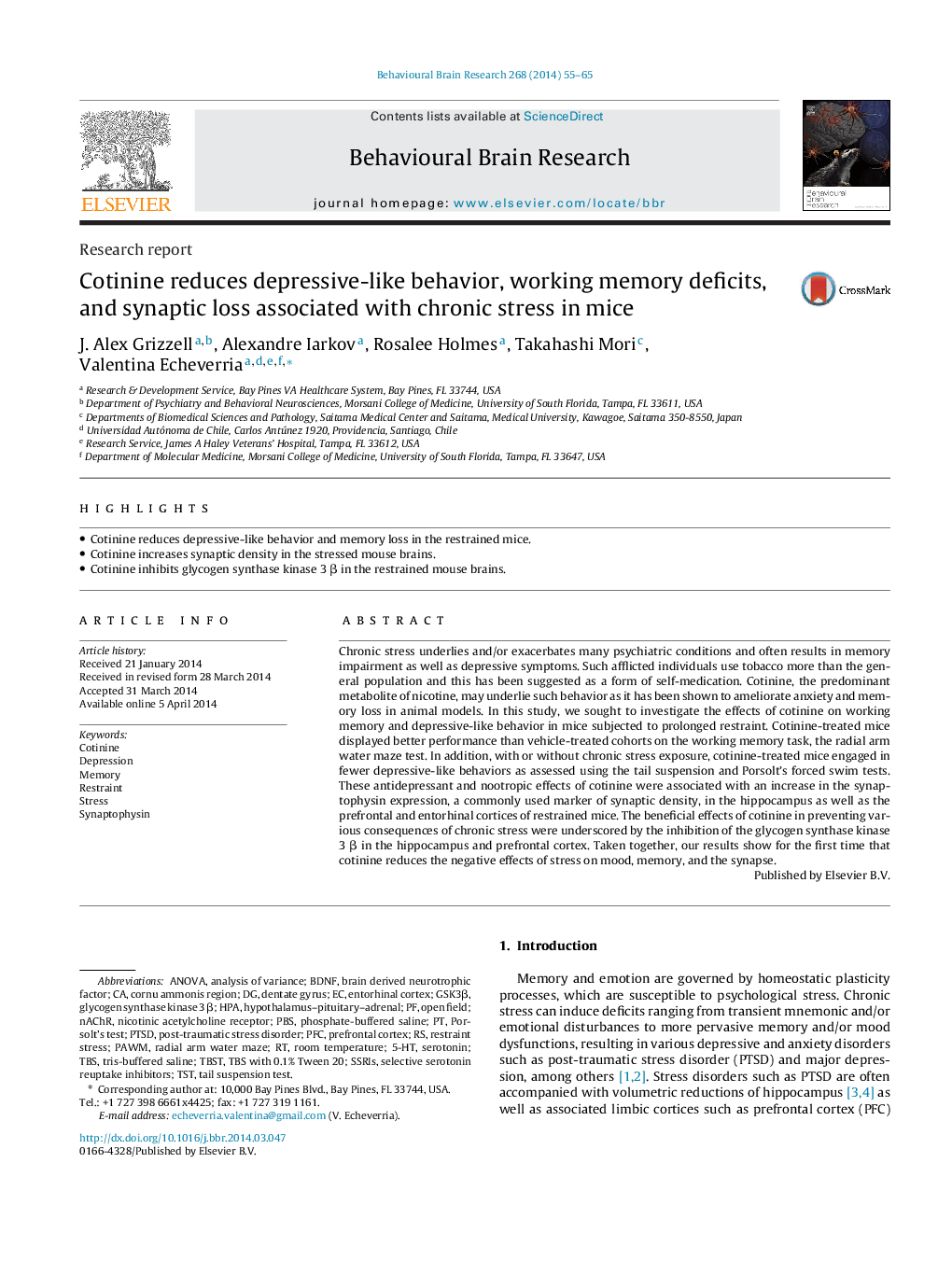| Article ID | Journal | Published Year | Pages | File Type |
|---|---|---|---|---|
| 6258093 | Behavioural Brain Research | 2014 | 11 Pages |
â¢Cotinine reduces depressive-like behavior and memory loss in the restrained mice.â¢Cotinine increases synaptic density in the stressed mouse brains.â¢Cotinine inhibits glycogen synthase kinase 3 β in the restrained mouse brains.
Chronic stress underlies and/or exacerbates many psychiatric conditions and often results in memory impairment as well as depressive symptoms. Such afflicted individuals use tobacco more than the general population and this has been suggested as a form of self-medication. Cotinine, the predominant metabolite of nicotine, may underlie such behavior as it has been shown to ameliorate anxiety and memory loss in animal models. In this study, we sought to investigate the effects of cotinine on working memory and depressive-like behavior in mice subjected to prolonged restraint. Cotinine-treated mice displayed better performance than vehicle-treated cohorts on the working memory task, the radial arm water maze test. In addition, with or without chronic stress exposure, cotinine-treated mice engaged in fewer depressive-like behaviors as assessed using the tail suspension and Porsolt's forced swim tests. These antidepressant and nootropic effects of cotinine were associated with an increase in the synaptophysin expression, a commonly used marker of synaptic density, in the hippocampus as well as the prefrontal and entorhinal cortices of restrained mice. The beneficial effects of cotinine in preventing various consequences of chronic stress were underscored by the inhibition of the glycogen synthase kinase 3 β in the hippocampus and prefrontal cortex. Taken together, our results show for the first time that cotinine reduces the negative effects of stress on mood, memory, and the synapse.
